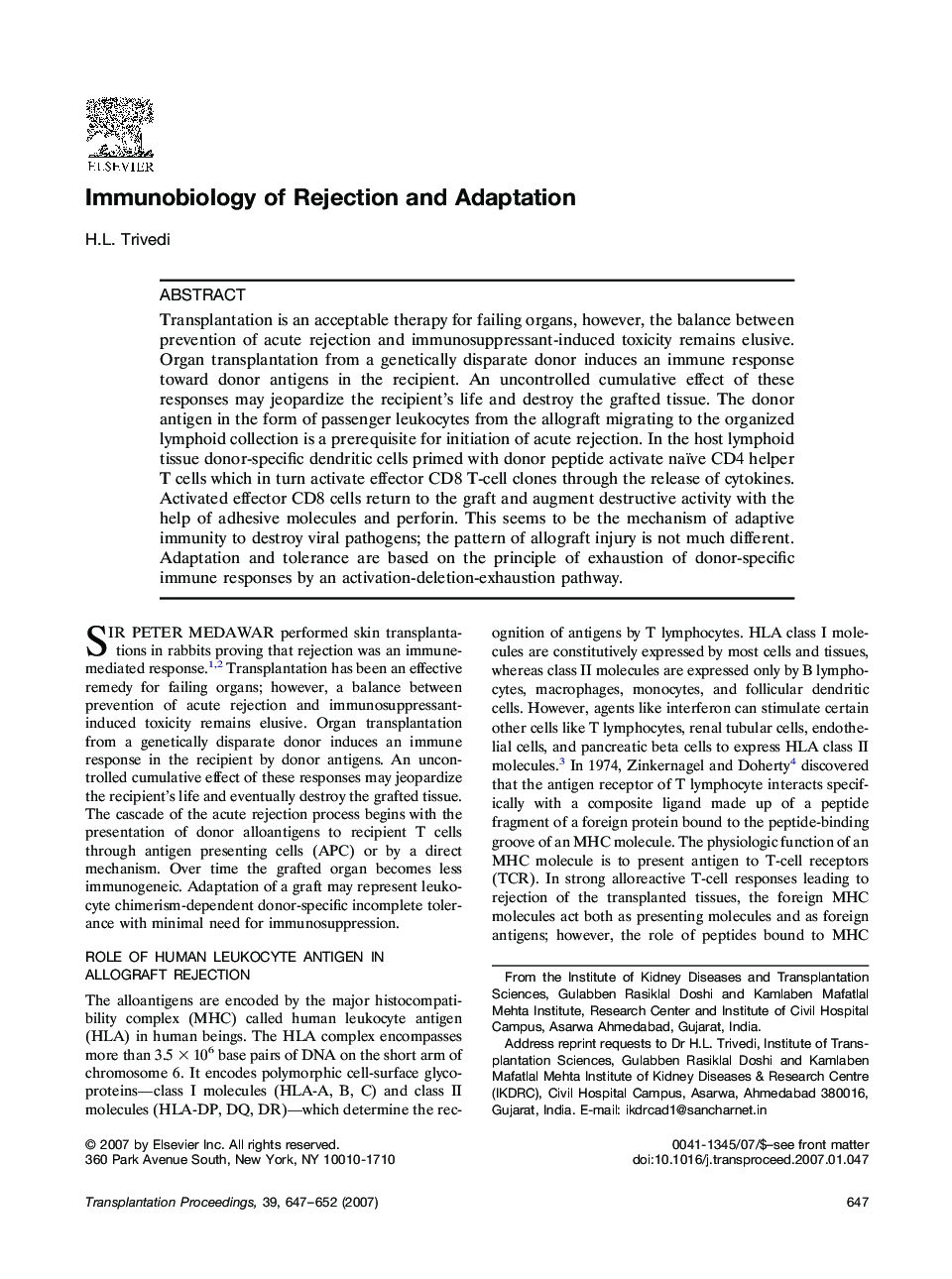| کد مقاله | کد نشریه | سال انتشار | مقاله انگلیسی | نسخه تمام متن |
|---|---|---|---|---|
| 4263181 | 1284617 | 2007 | 6 صفحه PDF | دانلود رایگان |

Transplantation is an acceptable therapy for failing organs, however, the balance between prevention of acute rejection and immunosuppressant-induced toxicity remains elusive. Organ transplantation from a genetically disparate donor induces an immune response toward donor antigens in the recipient. An uncontrolled cumulative effect of these responses may jeopardize the recipient’s life and destroy the grafted tissue. The donor antigen in the form of passenger leukocytes from the allograft migrating to the organized lymphoid collection is a prerequisite for initiation of acute rejection. In the host lymphoid tissue donor-specific dendritic cells primed with donor peptide activate naïve CD4 helper T cells which in turn activate effector CD8 T-cell clones through the release of cytokines. Activated effector CD8 cells return to the graft and augment destructive activity with the help of adhesive molecules and perforin. This seems to be the mechanism of adaptive immunity to destroy viral pathogens; the pattern of allograft injury is not much different. Adaptation and tolerance are based on the principle of exhaustion of donor-specific immune responses by an activation-deletion-exhaustion pathway.
Journal: Transplantation Proceedings - Volume 39, Issue 3, April 2007, Pages 647–652